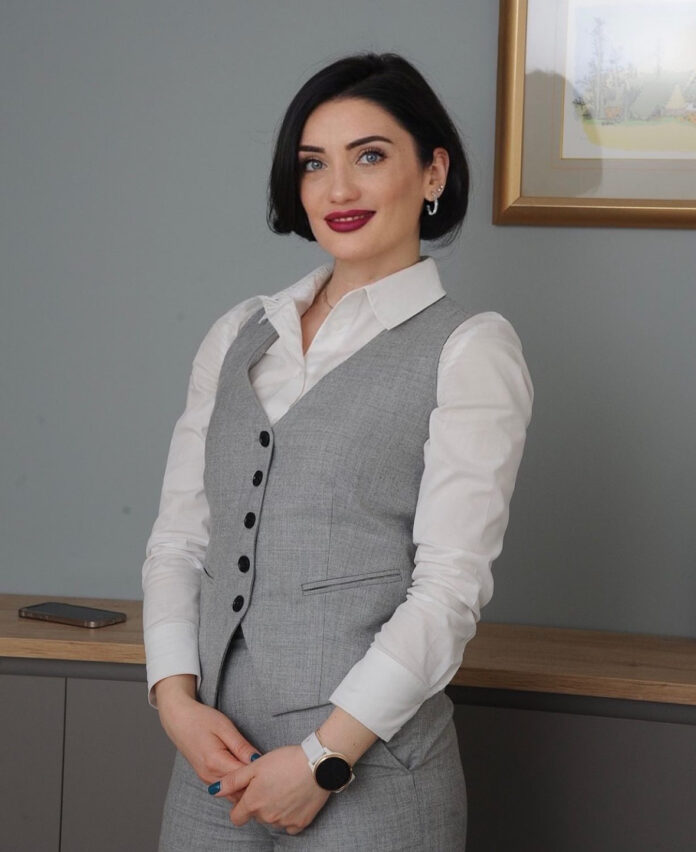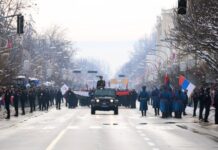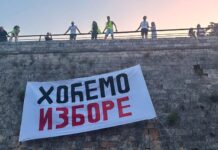In North Macedonia, where the political scene is constantly turbulent, young people find themselves on the margins of a system they are expected to inherit. According to research conducted by the Westminster Foundation for Democracy (WFD), as many as 62% of young people would leave the country if given the opportunity, while 80% describe themselves as “socially inactive.” The same research shows that although 90% of youth participate in elections, 50% do not believe their vote can influence the situation in the country. This data is not only an alarm bell for politicians, but also an indicator of a deep structural gap in education, information, and active citizenship.
And this is where the problem of political literacy begins — a concept that goes beyond merely knowing political parties or recognizing political leaders. It means understanding how the state functions, what the rights and responsibilities of citizens are, and — perhaps most importantly — how to influence the processes that shape the future of us all. Without this literacy, democracy is just a form without substance.
Political literacy is not just the ability to read election programs or know the names of politicians. It represents critical awareness, understanding of power systems, the ability to recognize manipulation, and — again, most importantly — the readiness to act. In a democratic society, politically literate youth are not just citizens — they are creators of the future.
Education and Awareness
Although civic education formally exists in North Macedonia’s curriculum, its implementation is often reduced to a formality. According to research by the Westminster Foundation for Democracy, 57% of young people are not interested in and do not follow political developments, which highlights the urgent need to improve political education and engage youth in political processes.
In a recent Zoom discussion organized by Perspektiva Plus, 16 young people from across the country shared their thoughts on political literacy. Their statements were honest, critical, and highly relevant.
Luka Pavicevic, former president of the High School Union and a Harvard student, compared the educational practices of the U.S. and North Macedonia. “In the U.S., political literacy is a built-in part of the curriculum. Here, it depends on individual initiative — and that’s a big problem,” he emphasized.
Ilija Blazhevski, the youngest candidate in the last elections and an activist, added that many young people have only surface-level knowledge, which leads to apathy. “Protests and activism are the real classroom for politics. Only through practical experience can one understand what political engagement means,” he said.
Danilo Krstevski, president of the Student Assembly at the Faculty of Law, pointed out that law and political science students have an advantage — but what about the rest? “Political education should be mandatory for everyone. Democracy isn’t built only by lawyers,” Danilo stressed.
What Are the Main Problems?
-
Educational gap: Civic education exists on paper, but is neglected in practice. Teaching is often theoretical, without space for discussion, critical thinking, or real involvement.
-
Disinformation: Young people mostly get their information from TikTok, Instagram, or YouTube, where accuracy is questionable.
-
Systemic marginalization: Youth are rarely part of decision-making processes. Political parties see them as votes during campaigns, but not as carriers of ideas and vision.
-
Apathy and mistrust: Most young people feel disillusioned with the system and politicians. Without belief that change is possible, it’s hard to motivate them to engage.
Political Literacy as a Tool for Change
Young people who are active — through protests, student assemblies, NGOs — show that when there is knowledge and motivation, there are results. But they are the exception, not the rule. To expand political literacy, we need:
-
Education reform: Civic education must become interactive, modern, and connected to real life. Election simulations, debates, and experiential learning are key.
-
Media and digital literacy: Teaching how to recognize fake news, propaganda, and biased sources — especially on social media.
-
Support for youth engagement: Local and national authorities should create programs for youth participation in decision-making and policy creation.
-
Real inclusion of youth in politics: True participation in institutions, not just symbolic placement on candidate lists.
Global Experiences – and What We Can Learn
While North Macedonia faces challenges like low political engagement and limited youth inclusion in democratic processes, several European countries offer inspiring examples of how to advance political literacy.
Finland systematically integrates media and political literacy into primary education, encouraging critical thinking, recognition of disinformation, and understanding of institutions. Teachers are trained to lead discussions on democratic values, and students simulate election processes.
Estonia stands out with its successful digital democracy. Young people are actively involved in policymaking through e-Consultation platforms and school-led digital literacy initiatives. This participation builds trust in institutions and strengthens the sense of belonging.
In German schools, particularly within subjects like “Politics” or “Civic Education,” discussions on current political issues are encouraged, which leads to increased political knowledge and greater willingness to engage. Research shows that this approach has a strong impact on civic skills.
The experiences of Finland, Estonia, and Germany show that political literacy is built not only through formal education, but also by creating a culture of open dialogue, inclusion, and digital transparency. North Macedonia can draw valuable lessons — especially in terms of introducing political education, digital communication with youth, and fostering active school debates — but it requires will, investment, and vision.
Young people are not just the future — they are here, now — with the energy, ideas, and capacity to drive change. But without education, information, and opportunities, that energy will remain untapped.
Let’s build a society where political literacy is not a luxury, but a right. Let’s teach young people not just how to vote, but why to vote. Because an informed young person is not just a citizen — they are a guardian of democracy.
Elena Pavlovka Dokovska













